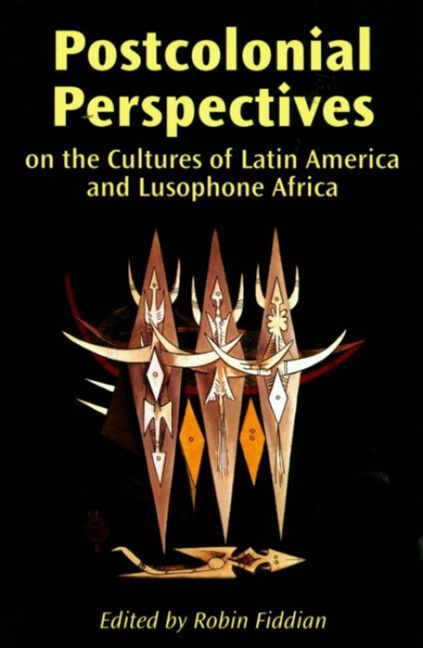Book contents
- Frontmatter
- Contents
- Preface
- Locating the Object, Mapping the Field: the Place of the Cultures of Latin America and Lusophone Africa in Postcolonial Studies
- Chapter One On Metropolitan Readings of Latin American Cultures: Ethical Questions of Postcolonial Critical Practice
- Chapter Two Ig/noble Barbarians: Revisiting Latin American Modernisms
- Chapter Three José Carlos Mariátegui: Culture and the Nation
- Chapter Four Doing Time in Peru: the Poetics of Multitemporality as Method for Cultural History
- Chapter Five America, Americanism and the Third World in the Work of Leopoldo Zea
- Chapter Six Fernando Ortiz's Transculturation: the Postcolonial Intellectual and the Politics of Cultural Representation
- Chapter Seven Caribbean Masks: Frantz Fanon and Alejo Carpentier
- Chapter Eight Colonial Crosswords: (In)voicing the Gap in Mia Couto
- Index
Chapter One - On Metropolitan Readings of Latin American Cultures: Ethical Questions of Postcolonial Critical Practice
- Frontmatter
- Contents
- Preface
- Locating the Object, Mapping the Field: the Place of the Cultures of Latin America and Lusophone Africa in Postcolonial Studies
- Chapter One On Metropolitan Readings of Latin American Cultures: Ethical Questions of Postcolonial Critical Practice
- Chapter Two Ig/noble Barbarians: Revisiting Latin American Modernisms
- Chapter Three José Carlos Mariátegui: Culture and the Nation
- Chapter Four Doing Time in Peru: the Poetics of Multitemporality as Method for Cultural History
- Chapter Five America, Americanism and the Third World in the Work of Leopoldo Zea
- Chapter Six Fernando Ortiz's Transculturation: the Postcolonial Intellectual and the Politics of Cultural Representation
- Chapter Seven Caribbean Masks: Frantz Fanon and Alejo Carpentier
- Chapter Eight Colonial Crosswords: (In)voicing the Gap in Mia Couto
- Index
Summary
By bringing from distant lands our forms of life, our institutions, and our vision of the world and by striving to maintain all that in an environment sometimes unfavourable and hostile, we were exiles in our own land.
Sérgio Buarque de Hollanda… there is always an estranging abstraction at work in the processes of exchange between the subaltern object of analysis and its commodifying discourse, in which disciplinary knowledge-formation is always contestable precisely because, by definition, it is not and can never be the knowledge of the Other as the Other would know herself or himself.
Gareth WilliamsOne
My subject is cultural relations and, in particular, relations on the global North/South axis. I am going to consider the multiple and challenging factors at play in the contemporary reading and analysis of Latin American cultures from positions within the metropolitan nations. The context for my approaching this subject is the postcolonial world in which such readings now necessarily take place, a world acutely conscious of the ethical and political dimensions of dealing with the Other. It is a context which has been explored intensively over the last ten years and in which there has developed a productive questioning of how the methods used in analysis in one context are exported to others, a process which may lead to the problematic reduction of the Other to the Same. My aim is to avoid such a reduction and yet to achieve a position in which metropolitan critical practice can be brought into ethical engagement with postcolonial Latin American cultures. The problems inherent in such cultural engagements are pithily encapsulated by the Cuban- American critic, Gustavo Pérez Firmat, who signals the acute sensitivity of Latin Americans to the ‘contribution’ of non-Latin Americans to their cultural debates:
… one of the most insidious types of colonialism is the onomastic or conceptual, the situation that arises when the originality or distinctiveness of the home-grown is explained and rationalized using foreign categories, as if we could grow the guavas but needed someone else to package the paste.
- Type
- Chapter
- Information
- Publisher: Liverpool University PressPrint publication year: 2000

